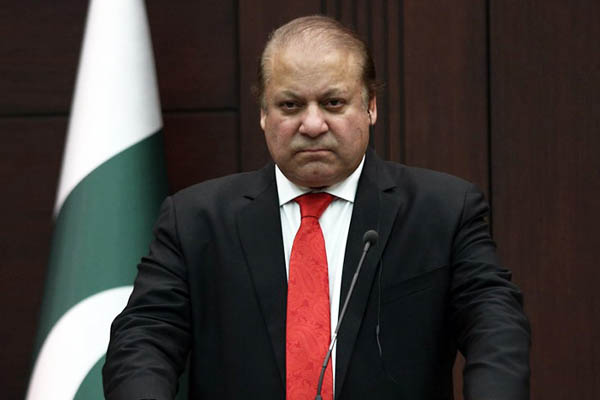
File Photo. Adem Altan—AFP
High-level Pakistani delegation hopes to ease tensions between rival nations.
Prime Minister Nawaz Sharif will lead a high-level delegation to Saudi Arabia and Iran this week to try to ease tension between the Muslim countries, a minister said Sunday.
Information minister Pervez Rashid said Sharif would travel to Riyadh on Monday and Tehran on Tuesday and would meet Saudi King Salman bin Abdulaziz and Iranian President Hassan Rouhani.
Foreign ministry spokesman Qazi Khalilullah said Sharif would exchange views on regional and international issues and try to reduce tension between the two countries. “Pakistan is deeply concerned at the recent escalation of tensions between the Kingdom of Saudi Arabia and the Islamic Republic of Iran,” the spokesman said in a statement. He said the prime minister has called for the peaceful settlement of differences in the larger interests of Muslim unity.
“The purpose of the visit is to mediate and to end the standoff between the two countries,” a third government official told AFP, requesting anonymity.
Sunni Muslim Saudi Arabia and Shia Iran are already fighting a proxy war in Yemen and support opposing sides in the Syrian conflict. But tensions have reached new heights in the past two weeks.
Saudi Arabia and a number of its Sunni Arab allies cut diplomatic ties with Iran after protesters angry at Riyadh’s execution of a prominent Shia cleric on Jan. 2 sacked its embassy in Tehran.
Local media said Pakistan Army chief Gen. Raheel Sharif would accompany Premier Sharif.
Pakistan-based analyst Hasan Askari backed Sharif’s bid to defuse tension. “It’s a very positive move in the right direction. The tension between the two countries is destabilizing for the region,” he said. “Pakistan itself is passing through a difficult time and that’s why [it is] trying to stop the spillover in regional tension,” Askari said, referring to sectarian friction in the country.
Pakistan is a majority Sunni country but 20 percent of the population is Shia. Its decision this month to join Saudi Arabia’s 34-country coalition against extremism sparked a domestic protest by the main opposition parties, who called for negotiations between Riyadh and Tehran and put Islamabad under pressure to mediate.
